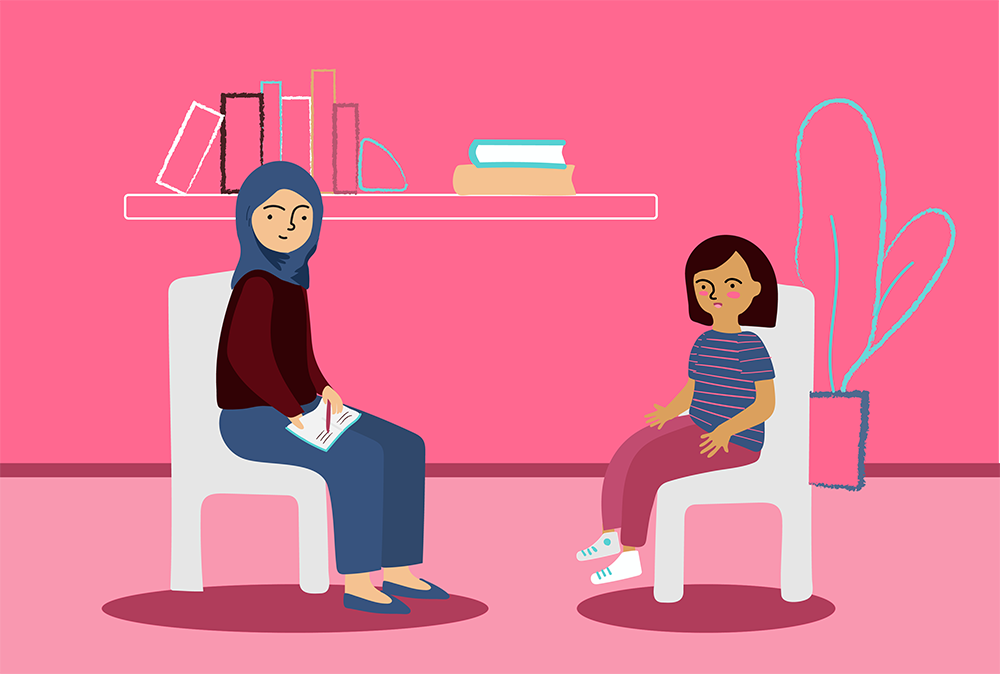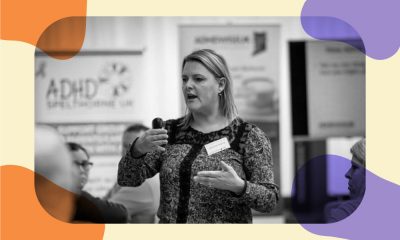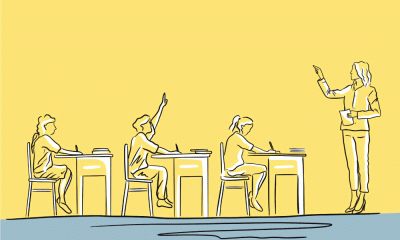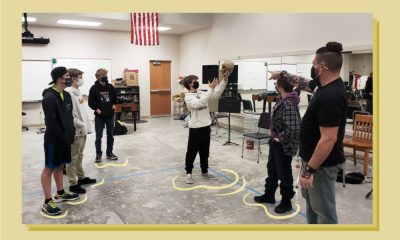Education
Five Ways to Become a Good Listener as a School Counselor
"The counseling I received helped me cope with the loss of my mum."
Think about the last time you had a conversation with someone where you felt like they really listened. What was it they did that showed you they were paying attention to you? How did it make you feel?
As a school counselor, listening to your students is paramount to being successful in your role. It shows you care, it shows you understand and most importantly, it helps you coordinate the right support. As someone who had in-school counseling after losing a parent at a young age, I know all too well how it feels to be in these students’ positions. I sat through countless sessions with my school counselor and I understand exactly how active listening can help a child who is going through a tough time.
The counseling I received helped me cope with the loss of my mum and even now, ten years later, I still go back to the strategies the counselor taught me. She managed to get it so right, and you can too. It all begins with being a good listener.
Watch your body language
Something I will always remember is how my counselor consistently maintained consistent eye contact with me. I knew there was simply nothing in that room more important than me and what I was saying, because her body language said so. Yes, she gave me verbal cues — she nodded her head, said “mmm” and “yes” — but how she really showed me she was listening was through her body language. Imagine if she had asked me, “can you tell me more about that?” but sat with her arms crossed, her eyes darting around the room. I wouldn’t have told her more, because her body language would’ve indicated she didn’t really care and wasn’t giving me her full attention.
Think about how you portray yourself. Body language is so important, and people often forget how much it gives away. You might give a message verbally, but your body language could say something completely different. And children will pick up on it, trust me.
Make sure your body language is open: uncrossed legs and arms, always maintain eye contact and smile. You have to look friendly!


(c) Reset Fest Inc, Canada
Respect their feelings
Think back to when you were young and the number of times an adult didn’t take your feelings seriously because you were a child. Adults often tell children how they should and shouldn’t feel. Or, commonly, how they can’t feel: “it can’t have been that bad” or “you’ll be fine.” A good counselor should always help the student understand their feelings.
Asking me questions such as “why do you feel that way?” helped me recognize that my counselor didn’t judge me, she wasn’t dismissing my feelings, wasn’t telling me how to feel, and wanted to understand my problems. She was on my side. Crucially, it helped me reflect on why I did feel that way. Be sensitive to your pupils and always listen with an open mind, no matter what they tell you. Good counselling should never be judgemental.
Responses like “it sounds like you felt really sad,” “I can understand why you feel lonely,” or “let’s talk about why you felt that way” are all it takes to show respect for a child’s feelings.
Ask, but don’t probe
You need to ask enough questions to keep a discussion going, but it’s necessary to phrase them in the right way and at the right time. My counselor always started a session with: “how are you feeling today?” and only asked me more questions when I paused, giving me uninterrupted time to express myself.
Sessions should never feel like an interrogation. I knew my counselor was listening because she waited for me to finish speaking before asking a question. Pay attention the next time you’re having a conversation with someone and observe. Ask yourself: are you actively listening or simply nodding your head? Are you frantically trying to think of what to say next? Is your mind wandering or are you fully engaged in the conversation?
Be mindful and make sure your questions are well-timed. Try careful, open-ended questions that require more than a yes or no such as “can you tell me more about that?” or “how did that make you feel?” or “what happened next?”
Let the student do the talking
This is a big one. A good counselor always remembers why they are there: to talk about the student. Each of my sessions lasted an hour, and I talked for at least 55 minutes of them and always about me. My counselor never interrupted me and never brought the focus back to them or, in fact, anything else. Every session was led by what I wanted to talk about. The student should always be at the center of your discussion, so focus on them and let them lead it. Don’t interrupt, don’t talk about yourself, and don’t move the discussion on too quick.


(c) Reset Fest Inc, Canada
Watch their body language
A student mumbles they’re “fine” but they look a little anxious and can’t look you in the eye. What does that tell you? A good counselor pays attention to body language and knows everything isn’t, in fact, fine. I can’t tell you how often that scenario played out between my counselor and I. After all, I was a child who had just lost her mum, talking about it made me upset and what did this woman know? But, my counselor did know, because she paid attention to what I was saying through my body language. She knew when to ask a couple more questions, like “can we talk a bit more about how you’ve been feeling over the last few days?” and knew when I needed to talk things through further. What someone is really trying to tell you can be clear from their body language, so make sure you watch your students closely.
The best counselors can read you like a book and can pay attention to everything you do and don’t say. Coping with the loss of my mother all came down to my school counselor listening to me, giving me my space and really showing me she understood. She asked me questions, but wasn’t pushy; she was patient when I felt like I didn’t want to talk and she always knew the right thing to say. Most importantly, she offered me a safe space to talk about my feelings without ever judging me and made each day at school a little easier, because she taught me how to cope. When your friends are asking you how you feel every five minutes, and even on the anniversary of my mum’s death each year since, I still take a deep breath as my counselor taught me, count to five, think of my favourite memory of my mum, and say “I’m OK thanks.” I can keep back the tears, and smile instead. Never underestimate just how much you can help a child by being a good listener.
Eleanor is a writer based in the UK who works within the education sector, with a focus on helping others to support the well-being and educational development of students. Follow Eleanor on Twitter.

























